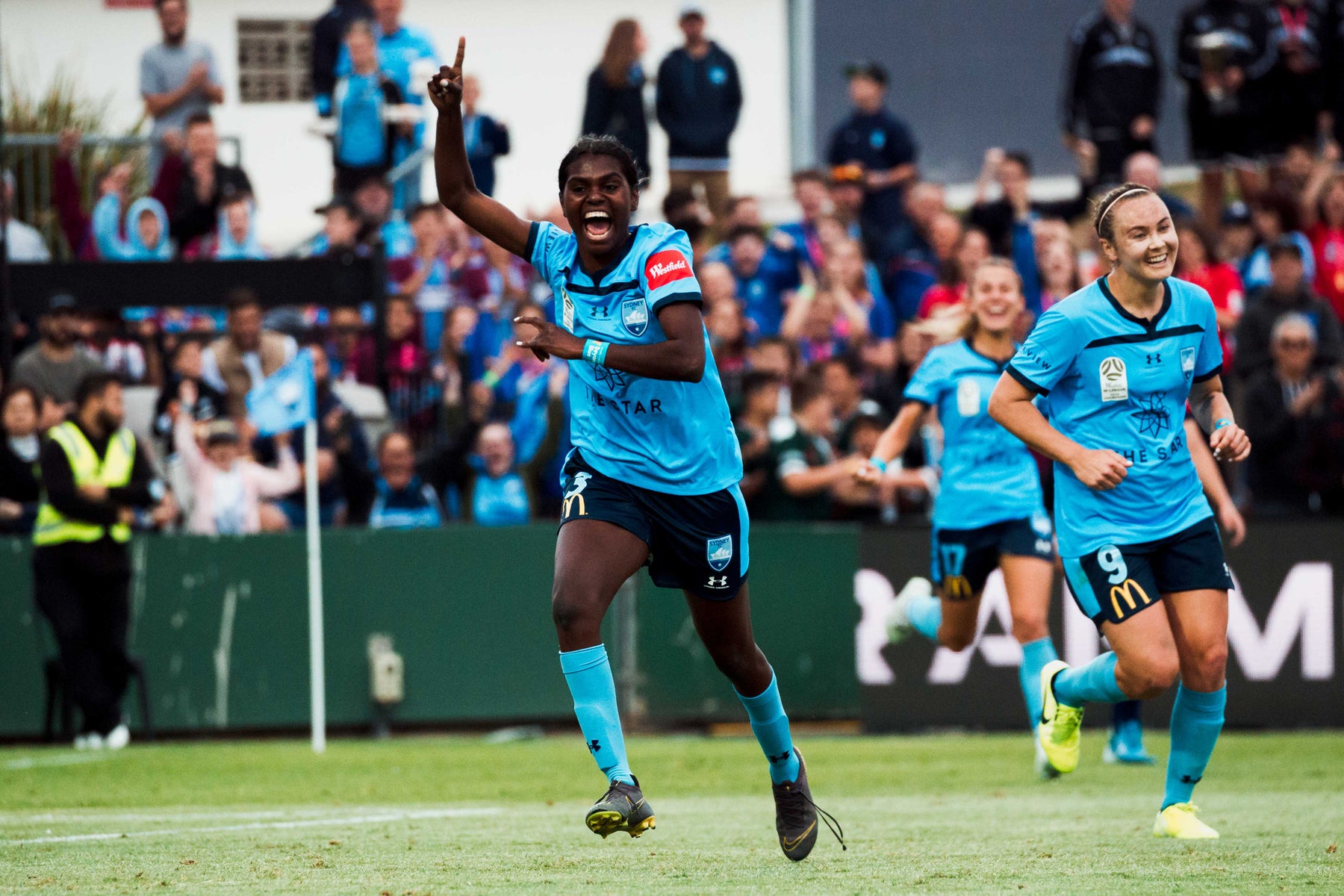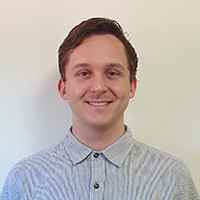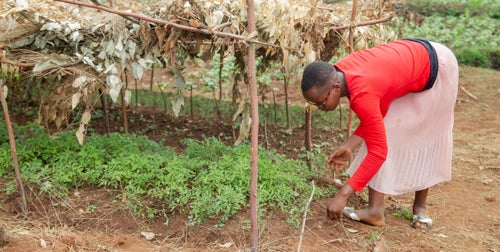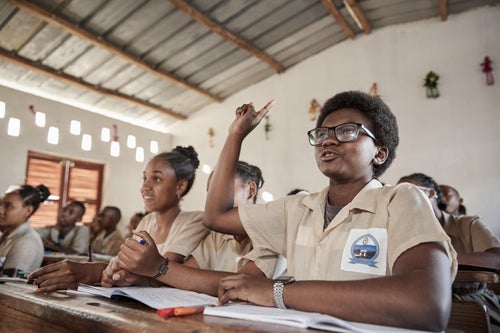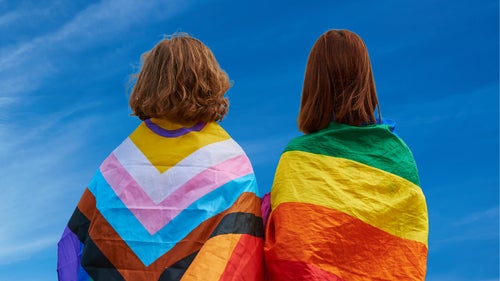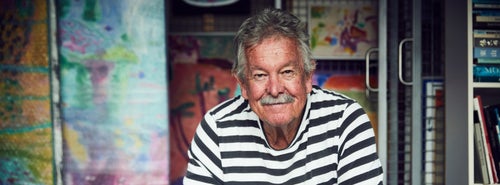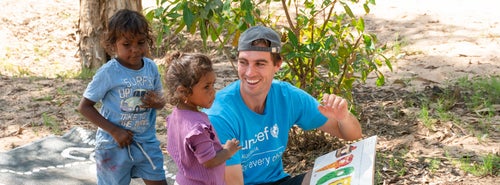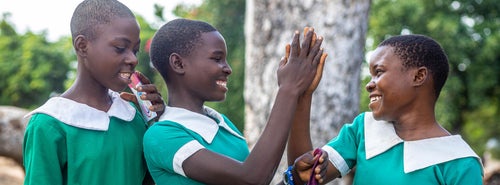Young voices inspire change and give other young people new ways of seeing the world and imagining what is possible.
Indigenous soccer player Shay Evans reflects on the importance of having Kyah Simon, an Olympic soccer player as her childhood role model:
"I remember watching Kyah as a kid and just being so excited to see an Indigenous athlete representing her country, playing football. That was when I decided I wanted to represent my country, my family and my community.”
Aboriginal and Torres Strait Islander people are the original inhabitants of Australia, having lived on the continent for 50,000 years. Yet today they make up only three per cent of the population and their communities suffer from the intergenerational effects of colonisation, such as poverty, discrimination, and reduced life-expectancy.
In recent years, we’ve seen more and more Indigenous activism, greater efforts to ‘Close the Gap’, and rising calls for community-led solutions to these problems.
At UNICEF, we believe in the power of young voices because we know how much they can change the world. Meet three young Indigenous leaders who are making a difference in their communities.
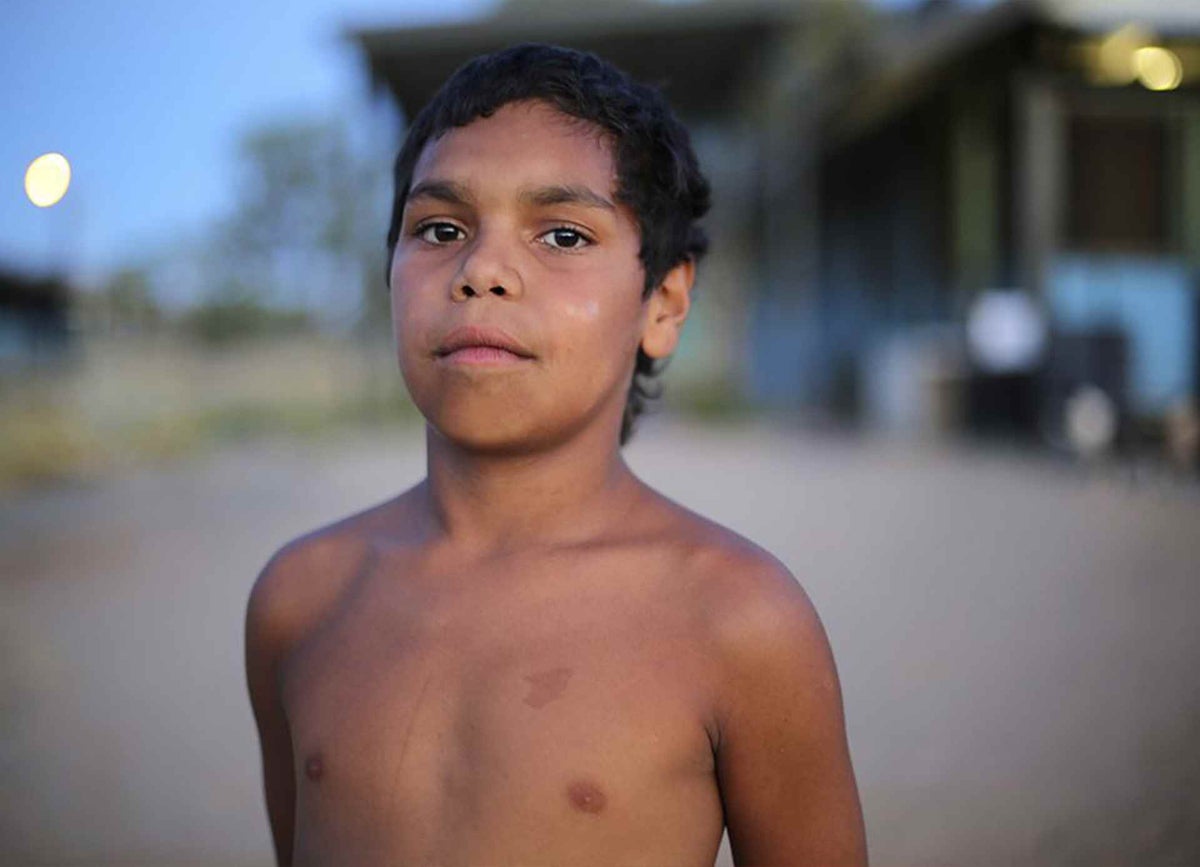
Dujuan Hoosan
Dujuan Hoosan is an Arrernte and Garrwa boy from Alice Springs. You might recognise him from the award-winning 2019 documentary ‘In My Blood It Runs’. The documentary follows Dujuan, who speaks three languages, as he struggles to stay engaged at a Western school, which teaches its students that Australian history began when Captain Cook landed on the shores of Botany Bay in 1770.
Referring to the dreamtime, a significant time for First Nations People when the Ancestral Spirits progressed over the land and created life and important physical geographic formations and sites, one of his teachers said it was ‘a bit confusing’. The inequality does not escape Dujuan.
“The history that we’re told at home is in language and it’s about the Aborigines. But the ones back at school, that was for white people, not for Aboriginals. The white people teach the Aboriginals to act like them. To be like them.”
After repeatedly running away from school and home to play with other boys in his community, Dujuan found himself into trouble with the police and local authorities. He was forced to confront, at age 10, the reality that he could be sent to youth detention.
While Dujuan was lucky enough to avoid this fate, around 600 Indigenous children are incarcerated every year.
After the film’s release, Dujuan travelled to Geneva, becoming the youngest person to address the UN Human Rights Council. In his speech he talked about the changes he wanted to see in Australia.
Dujuan’s story highlights the importance of culturally-safe education and support for Indigenous children.
UNICEF Australia partner with the Moriarty Foundation who have developed locally-led initiatives, such as Indi Kindi and John Moriarty Football programs, to give Indigenous children the best start to life and develop skills to give them a brighter future.
You can watch In My Blood It Runs here.
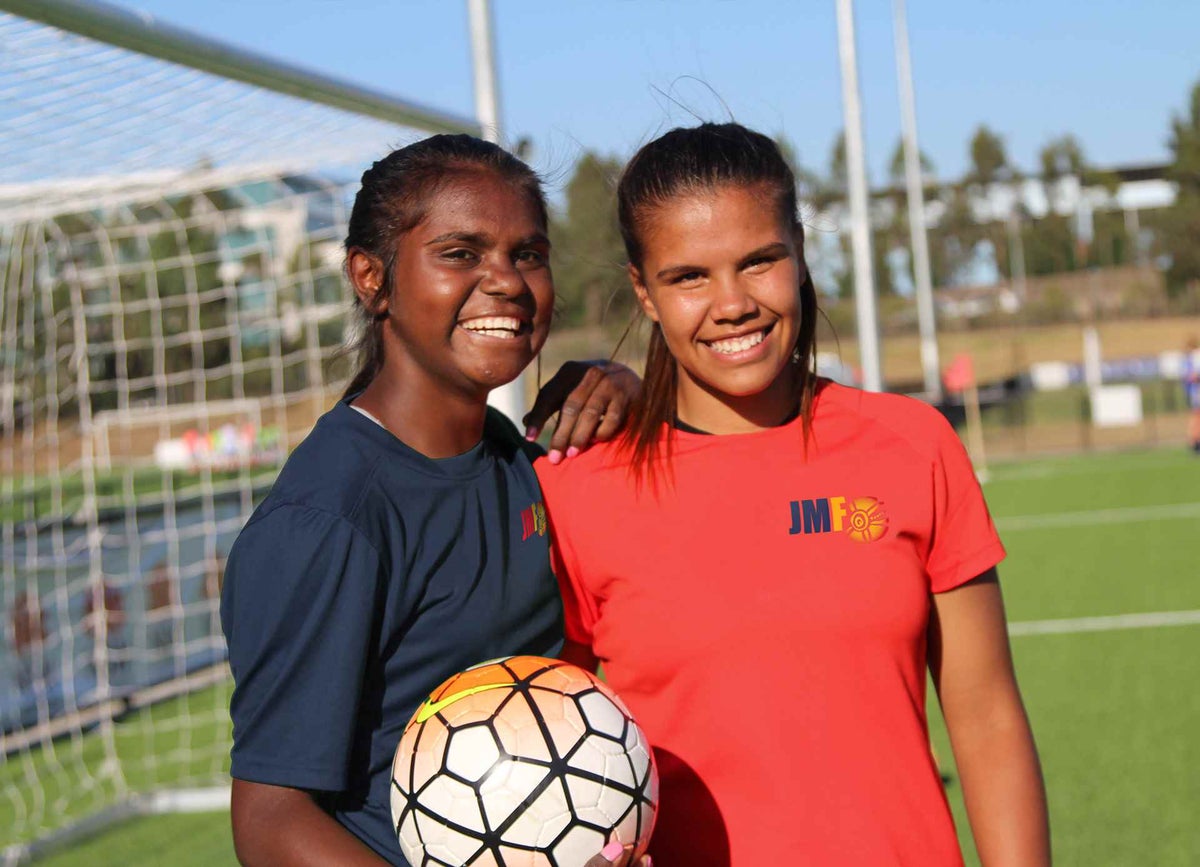
Shadeene (Shay) Evans
Shay Evans never dreamed that kicking a ball around, barefoot, with her friends in the remote community of Borroloola could lead to her to rise through the ranks of professional women’s football, eventually scoring a place on Australia’s national under-20 team, the Young Matildas.
Shay, a proud Marra woman, joined the John Moriarty Football (JMF) program at the age of nine. Coaches recognised her talent early on, and in 2015 she was awarded the first JMF school scholarship, which gave her a chance to attend Westfield Sports Highschool and take her playing to the next level.
While this was a life-changing opportunity for Shay, it also meant moving 3000km from her family and hometown.
“It was very difficult at first, being 13, it was very young to move away from home by myself but I found it easier because I had a very supportive family, great coaches and the John Moriarty Foundation.”
After playing for Sydney FC in the W-League, Shay made her debut for the Young Matildas in 2018, where she is now Vice Captain.
Shay has since won several awards, including the Northern Territory Junior Sportsperson of the Year (2020) and the Rebel Role Model Award, which recognised not only her professional skills but also her efforts to encourage and support younger players in the community.
Always looking for new ways to improve herself and the lives of those around her, Shay started a degree in social work in Sydney in 2019. She says back home in the community there are not many social workers.
“Kids go through family problems and don't have many people there to support them and talk them through it. One day I could go back into my community and help and support them and give back.”
UNICEF Australia is working with the Moriarty Foundation to deliver brighter futures for young Indigenous people. You can check out their work here.
Follow Shay on Instagram.
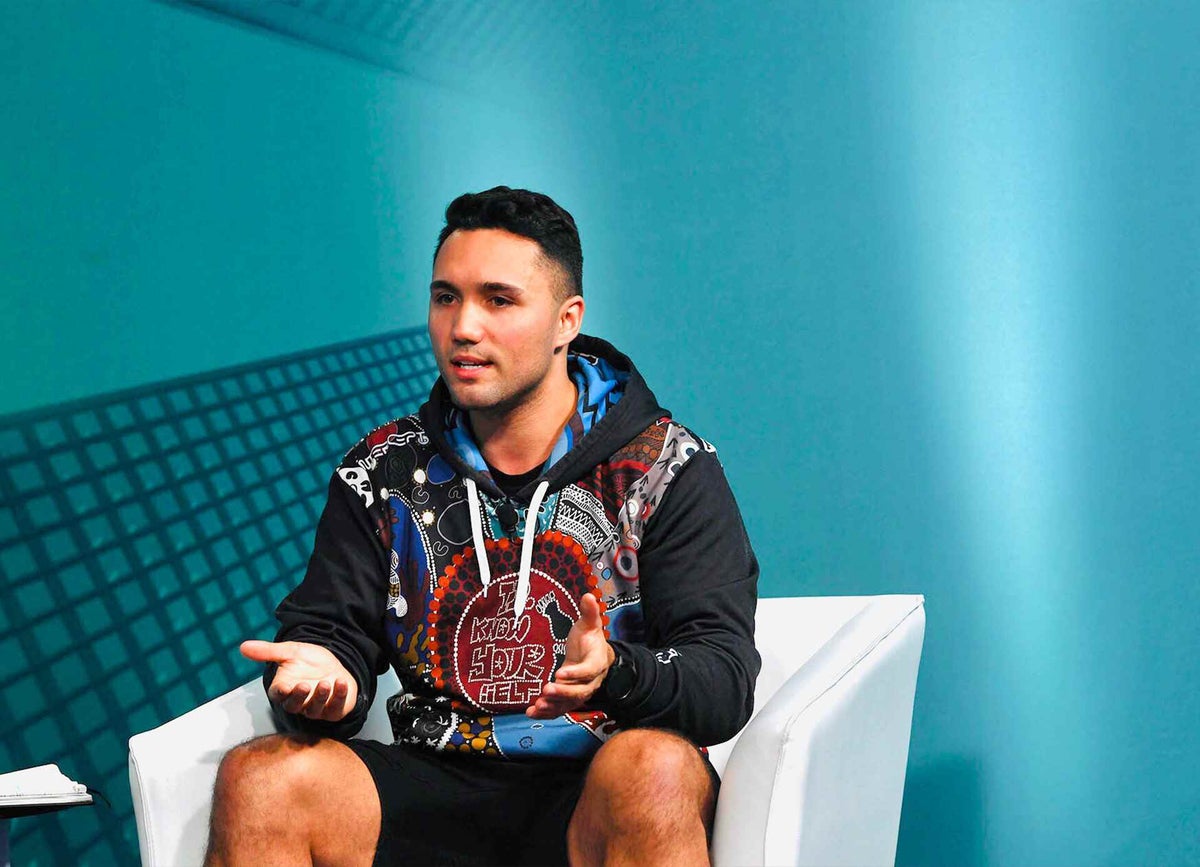
Isaiah Dawe
Isaiah Dawe, a Butchulla and Gawara saltwater man, was placed in out-of-home care at just two months old, and lived in 17 different places by the time he was 18.
Isaiah suffered years of abuse and neglect in the foster care system, but he was lucky enough to find a positive role model in Eric Bell, a Ngunnawa Elder, who taught him the value of hard work, respect for self and others, and how to be a leader.
Because of his experiences, Isaiah knew how hard it was to lose your community, culture, and identity. He also knew how life-changing a mentor could be, and the importance of belonging to a supportive community with a strong sense of culture.
With backing from the NSW Department of Community Services & Health, Isaiah launched 'ID. Know Yourself', a not-for-profit based in Redfern, Sydney that provides mentoring for Indigenous children and adolescents in the foster care system.
“Going through all those experiences in care, I wanted to make a difference … when I got out, I realised that there’s thousands of kids in care who are desperately needing support.”
The mentoring program is designed to give young Indigenous people a supportive environment where they can connect with culture, learn about health and wellbeing, and develop skills for life after care.
Follow Isaiah on Twitter.
UNICEF Australia acknowledges the Traditional Custodians of Country of the land and communities in which we and our partners work throughout Australia, and their connection to their lands, waters, and communities. We pay respect to Aboriginal and Torres Strait Islander peoples and cultures, and to Elders both past, present and emerging.
Alongside our partners, we are working to Close The Gap for Indigenous communities and ensure every child has the best start in life.
After four years, our incredible partnership with Indi Kindi ended in October 2024. We will continue to work with partners and governments to ensure all children have access to the best early years education and care.
DONATE NOWRelated articles
Stay up-to-date on UNICEF's work in Australia and around the world



